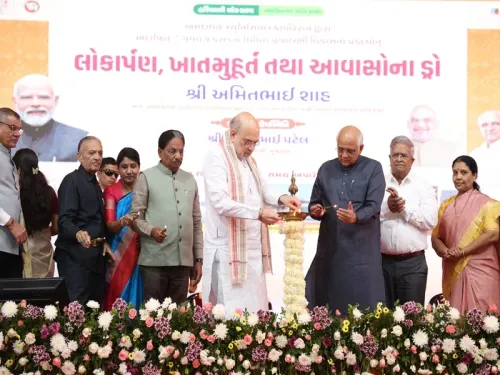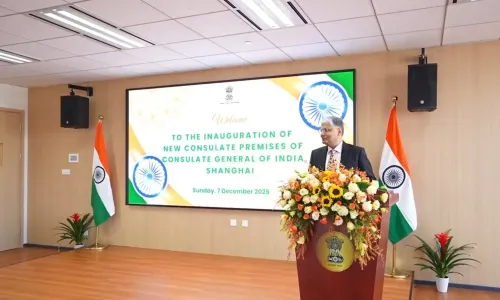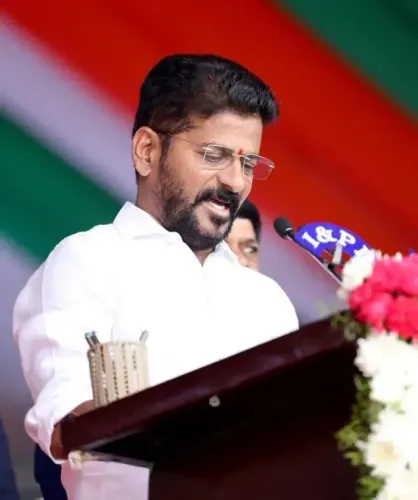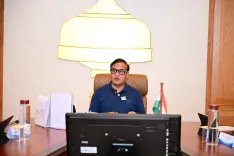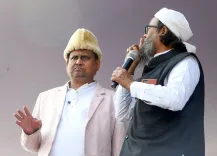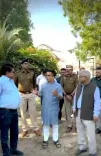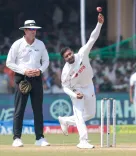Supreme Court to Review PIL on Violence Following Waqf Act in Bengal
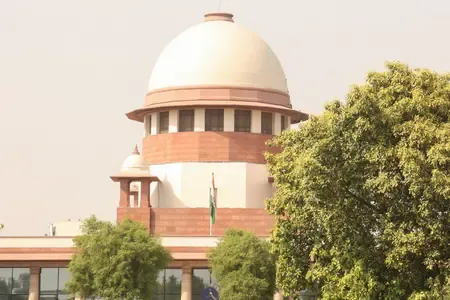
Synopsis
Key Takeaways
- PIL filed for judicial inquiry into Bengal violence.
- Protests erupted nationwide against Waqf Amendment Act.
- Request for status report on clashes and hate speech.
- CJI expressed concern over ongoing violence.
- Government commitment to halt new Waqf Board appointments.
New Delhi, April 20 (NationPress) The Supreme Court is set to review a public interest litigation (PIL) on Monday that demands the establishment of a five-member judicial inquiry commission, led by a retired Supreme Court judge, to investigate the violent protests that erupted against the Waqf (Amendment) Act, 2025 in Murshidabad, West Bengal.
According to the causelist available on the Supreme Court's website, a bench consisting of Justices Surya Kant and N.K. Singh will address this issue on April 21.
The petition requests the West Bengal government to submit a status report detailing the clashes and riots that occurred during the protests against the Waqf Amendment Act, in addition to taking measures to prevent hate speeches directed at any community.
Filed by advocate Vishal Tiwari, the PIL also urges the Union Home Ministry to issue guidance to Chief Secretaries of all states to mitigate hate and inflammatory speeches made by political parties or their leaders.
The petition notes that protests have erupted in several regions across the nation following the enactment of the Waqf (Amendment) Act, with demonstrations occurring in West Bengal, Jammu and Kashmir, Manipur, Chennai, and Bengaluru.
In Murshidabad District and North 24 Parganas of West Bengal, violence has escalated during protests against the Waqf Amendment Act. The unrest has resulted in fatalities and property damage, with incidents of stone-pelting and injuries to several police officers. Prohibitory orders and internet restrictions have been enforced in various parts of Murshidabad, and train services have been disrupted as protesters blocked rail tracks.
The petition further claims that certain political parties exploit religious sentiments for political gain.
“Instead of fostering peace, politicians deliver provocative speeches that exacerbate tensions. Chief Ministers and ministers, often shielded by tight security, make inflammatory remarks targeting specific religions and communities,” the petition asserts.
On Wednesday, a bench led by CJI Sanjiv Khanna expressed concern regarding the violence arising amid protests against the Waqf (Amendment) Act, 2025, as it considered several petitions challenging the legitimacy of contentious amendments made to the Waqf Act, 1995.
The bench remarked, “One thing that is very disturbing is the violence which is taking place. Once the matter is before the court, it should not happen.” This bench also included Justices Sanjay Kumar and K.V. Viswanathan.
The CJI Khanna-led bench recorded the Centre’s commitment that no new members would be appointed to the Waqf Boards or the Central Waqf Council concerning the Waqf (Amendment) Act, 2025, until the next hearing. The Supreme Court acknowledged the assurance provided by Solicitor General Tushar Mehta, stating that the status of existing Waqfs, including Waqf by user, will remain unchanged.



